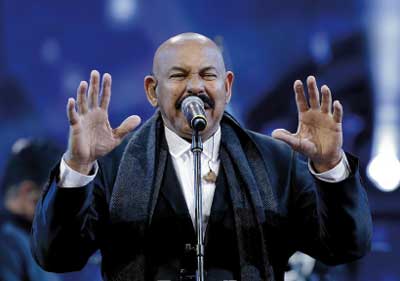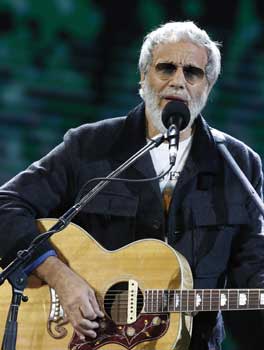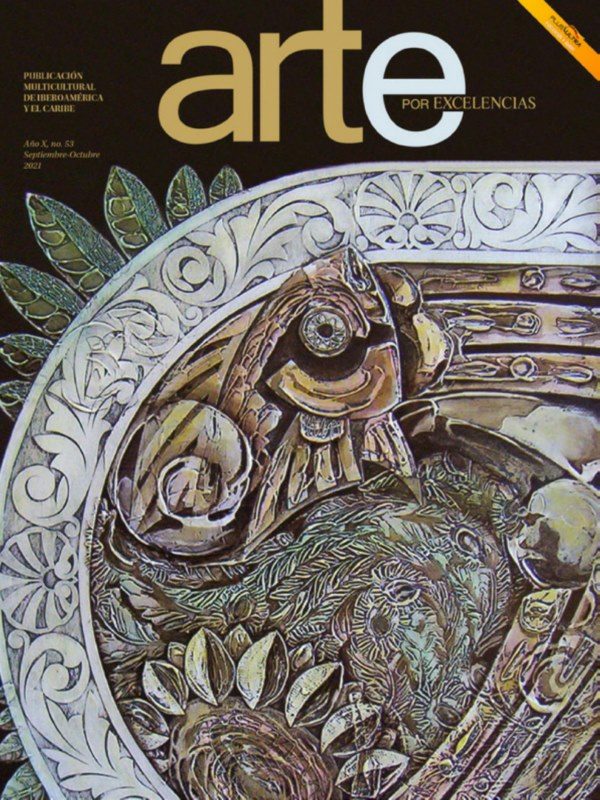While the rich Chilean businessman Leonardo Farkas inaugurated an unreliable reproduction of El pensador de Rodín, a few meters away, in the amphitheater of Fifth Vergara a detuned Luis Fonsi opened the first night of the 56th Edition of the International Festival of Song Vina del Mar, a mega-event that in the last days of February makes of this metropolis the city -center of the song world.
In its genesis 56 years ago, were the then mayor Gustavo Lorca from Viña del Mar, journalist Carlos Ansaldo and academic and musician Luis Sigall, responsive promoters of culture and traditional folk music of this southern nation, considered by the Argentina of Atahualpa Yupanqui, the nest of the New Latin American Song at the dawn of the sixties.
Which was in the beginning a meeting to promote the authentic Chilean musical creation was gradually relegated to finally be dethroned in 1974, a year after the fascist military coup against Salvador Allende.
The Art song, the one you risk to find new paths of expression, is not abundant on the grounds of Vina del Mar.
More than a contest that prioritizes the true song, committed to the best human and aesthetic values, is a well designed platform to give hype to figures produced by the industry of the misleading media entertainment, able to mesmerize an audience mostly young who despises because it ignores that there are other songs: Thanks to life and Violeta Parra, which oxygenate the spirit and save us from the inertia of thinking.
That public, here called "The Monster" because it eats what is not to its liking, is the same who decides with its delivery ovation the Silver and Golden Seagull. Twenty awards were given this time; and as you can imagine there is no admission jury that previously select the distinguished with this award, or at least make a judgment of rigor.
To think is not fashionable in the Festival of Viña. What counts is that over fifteen thousand spectators attending each of the five nights of show cry chanting monotonous and maudlin the melodramatic bachatas of Romeo Santos, or that women do catharsis by a well-remembered Ricardo Arjona here, above all, when the strong earthquake occurred and he sang in 2012.

Special mention to Pharaoh of Salsa, the Venezuelan Oscar D'Leon, someone Cuba recalls with a mixture of joy and pain when he appeared at one of the festivals in Varadero, which was by the way a similar event to the Viña in its conception and which disappeared from our cultural environment without anyone knowing anything, for reasons that would help to write a graduation thesis.
 Art song, the one it risks to find new and different paths to communicate, does no longer exist in the grounds of the Quinta Vergara. Only the young Chilean singer Nano Stern reminded his founding fathers, Violeta Parra and Victor Jara, and made us ratify what the author of the famous Te Recuerdo Amanda (I remember you, Amanda), said: " A song that has been brave, will always be a new song."
Art song, the one it risks to find new and different paths to communicate, does no longer exist in the grounds of the Quinta Vergara. Only the young Chilean singer Nano Stern reminded his founding fathers, Violeta Parra and Victor Jara, and made us ratify what the author of the famous Te Recuerdo Amanda (I remember you, Amanda), said: " A song that has been brave, will always be a new song."
The best for me were the proposals of Argentinian Pedro Aznar and British Cat Stevens, the only ones who did not need poses or artifice to prove themselves as songwriters of good quality.
The English converted to Islam, with more than thirty-five years performing on the main stages of the world, tested his sobriety when singing. The respect of his musicians for his work and the intimacy of his lyrics, made some of those who have already surpassed the barrier of fifty feel full of joy.
Vina is not just a Song Festival; I would say that the name is only a pretext. It is a monster, a melting pot without drama and with show hosts who reported very little and barely communicate. There come together in endless days transmitted by television the Chilean humor, as localist I suspect it does not make smile the foreign, and interpreters of pop, ballads and other popular genres and musical trends.
Chilean music is not displayed as it needs and deserves. And on top when folk musicians come to show their work, 85 percent of the public goes to have lunch. What rootlessness, how little value for what is theirs.
 However, February is still the month for falling in love. It was the chosen month for the birth of a festival in 1960 which then became known internationally after eighteen years. It is called the festival of festivals, I do not know why, and allows Vina del Mar to continue being the perfect place at the continental level in which an artist fails or becomes famous.
However, February is still the month for falling in love. It was the chosen month for the birth of a festival in 1960 which then became known internationally after eighteen years. It is called the festival of festivals, I do not know why, and allows Vina del Mar to continue being the perfect place at the continental level in which an artist fails or becomes famous.
We know the rest: music is a business that gives juicy fruits, and behind the curtains of its celebrity the invisible threads of money and power move. However, and despite the time elapsed, the threat of tsunamis, volcanoes which sleep with their eyes open, earthquakes and forest fires, there is everything in the vineyard of the song.










